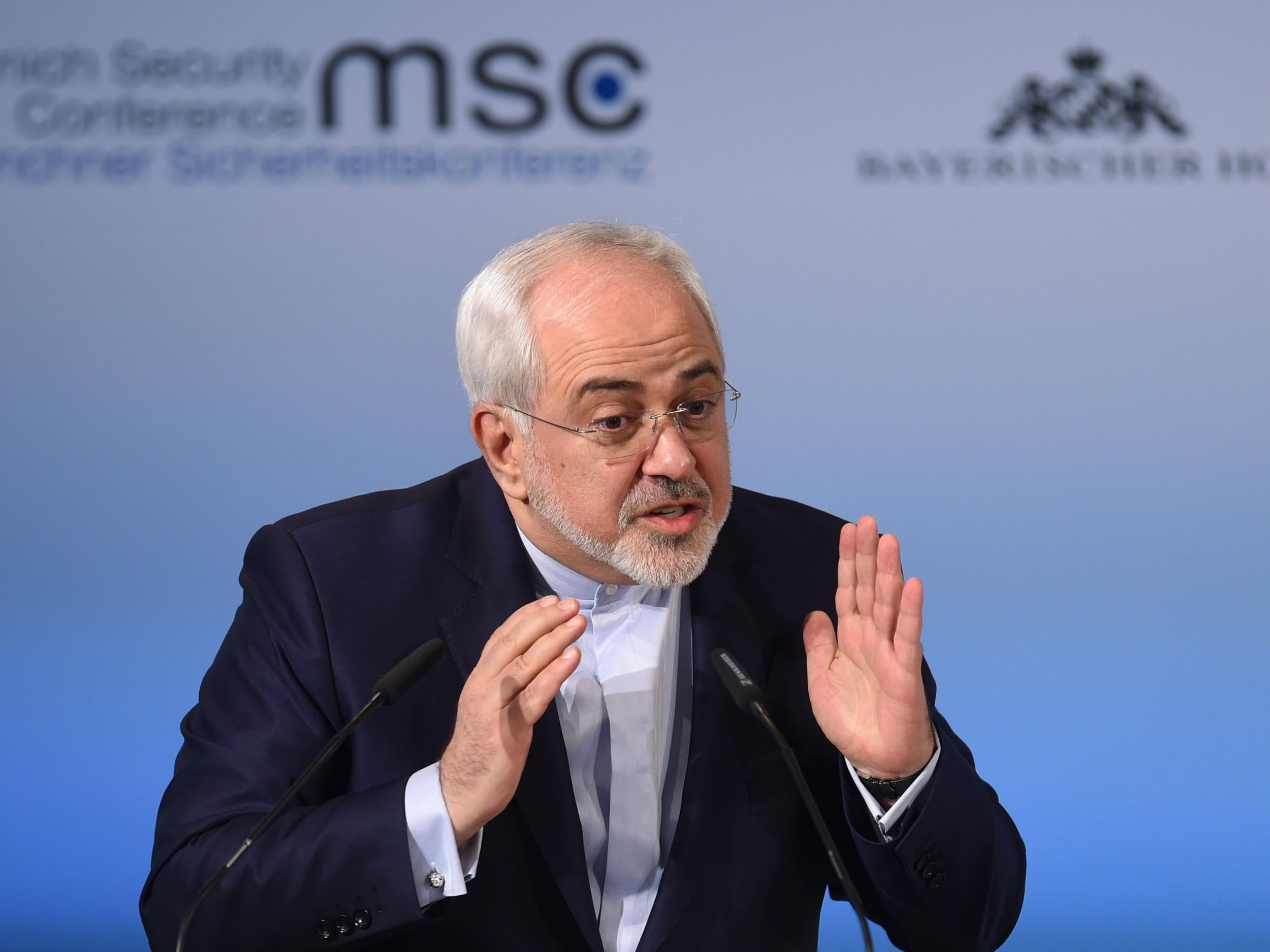Iran's foreign minister mocks Donald Trump 'putting him on notice'
'We don’t respond well to threats — and we don’t respond well to sanctions,' says diplomat

Iran’s foreign minister has mocked being “put on notice” in a tweet by Donald Trump and dismissed mounting pressure coming from Washington.
Mohammad Javad Zarif drew laughter from an audience at an international security conference in Munich when, referring to the President's post, he said the “tweet is now very fashionable’’.
Mr Trump had warned the Gulf nation it was “formally put on notice” on earlier in February after it tested a ballistic missile.

The Trump administration then imposed sanctions on individuals and groups linked to the country's Revolutionary Guards.
“We don’t respond well to threats, we don’t respond well to coercion and we don’t respond well to sanctions,” Mr Zarif told the meeting.
“Crippling sanctions produced a net total of 19,800 centrifuges.”
During his campaign, Mr Trump called a nuclear deal between several world powers and Iran was “one of the dumbest deals ever” and vowed to swiftly dismantle it.
Iran has kept its part of the deal and significantly reduced its nuclear capacity, according to international monitors.
Tensions around the accord were further raised on Sunday when Vice President Mike Pence suggested Tehran was freeing resources to promote terrorism.
Mr Pence also repeatedly referred to “radical Islamic terrorism”, aggravating critics who felt the Trump administration was targeting people for their faith.
German Chancellor Angela Merkel had used a speech to warn against such language just before Mr Pence spoke.
It emerged on Sunday that Republican senators were planning to introduce legislation that would impose harsher sanctions on the Islamic Republic, saying its testing of ballistic missiles violated UN Security Council resolutions.
“I think it is now time for the Congress to take Iran on directly in terms of what they’ve done outside the nuclear programme,” Senator Lindsey Graham, a member of the Senate Armed Services Committee, told the security conference.
Mr Graham vowed to take punitive action against Tehran, which he blamed for destabilising the Middle East.
“Iran is a bad actor in the greatest sense of the word when it comes to the region," he told the same security conference.
"To Iran, I say, if you want us to treat you differently then stop building missiles, test-firing them in defiance of UN resolution and writing 'Death to Israel' on the missile.
"That's a mixed message.”
Senator Christopher Murphy, a member of the Senate Foreign Relations Committee, told the panel there was nothing preventing Congress from imposing sanctions beyond those in place before the 2016 nuclear agreement with Iran.
Mr Murphy, a Democrat, said he had backed the nuclear deal in the explicit understanding that it would not prevent Congress from taking actions against Iran for issues separate to its nuclear capabilities.
“There's going to be a conversation about what the proportional response is,” Mr Murphy said, referring to Iran's missile test.
“But I don't necessarily think there's going to be partisan division over whether or not we have the ability as a Congress to speak on issues outside of the nuclear agreement.”
Mr Murphy said the US needed to decide whether it wanted to take a broader role in the regional conflict.
“We have to make a decision whether we are going to get involved in the emerging proxy war in a bigger way than we are today, between Iran and Saudi,” he said.
Iran was among the seven countries included in Mr Trump's travel ban targeting seven Muslim-majority nations.
Join our commenting forum
Join thought-provoking conversations, follow other Independent readers and see their replies
0Comments